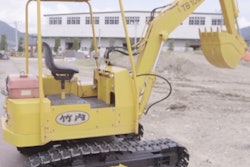
Dedicated and hardworking employees can be hard to find, and once you do find them it’s important to hang on to them.
Some days in the office will be more hectic than others, but when employees find that their everyday workload has them running for the door, it’s important to know how to help them out.
When even just one employee experiences burnout from too much stress at work, it can cause the environment of the workplace to go downhill, the quality of the work can suffer and other employees could follow suit soon after.
One of the easiest ways to prevent burnout is to notice the warning signs and preemptively strike before it gets out of hand. Knowing what to look for and what workplace situations to avoid can help keep your employees healthy and happy, and it can keep them from wanting to jump ship to a less stressful environment.
Identifying the symptoms
Workplace stress can be caused by a myriad of circumstances, and some can indeed be self-inflicted. Many people just see overextension at work as a way of life, and they don’t know how else to operate.
Many employees may take it upon themselves to do the job of multiple employees, even though they have not been asked to, and this can be one of the fastest ways they burn themselves out.
On the opposite end of the spectrum, some employers don’t realize that even though one person can handle everything, they shouldn’t have to. The fastest way to lose a dedicated employee is to overwork them and still expect more.
Don’t be afraid to tell your employees that they are not expected to do the work of three people, and be sure they know that it’s okay with you that they don’t overwork themselves.
Always make sure your staff has more than enough employees to do the work required of the company, and even consider hiring extra help during holidays, summers, and other busy times. This will keep your regular employees from pulling their hair out, and it will also help with those seeking part-time work.
A few common workplace stressors are the following:
- Inconsistent working atmospheres or different processes
- Having to learn new software and work through the challenges associated with it
- Deadlines that are unrealistic
- Frequent scheduling conflicts or interruptions
- Schedules that are unpredictable
- Physical demands like weather exposure or heavy lifting
- Adding on responsibilities beyond the initial scope of one’s role while not being compensated for the work
- Interpersonal demands such as interactions with colleagues or customers
Risks
When left unchecked, stressors such as these can lead to issues between co-workers, decline in work productivity, and more. And for your employees, it can even spill over into their personal and home lives by creating strife between family members, health issues, and a loss of passion for activities they previously enjoyed doing.
There are many risks associated with burnt-out employees. One of the most obvious ones is that they will be more prone to leave your company if they feel they are being overworked and no one cares. The second is that stress can also wreak havoc on the health of your employees.
Research done by the Center for Disease Control and Prevention (CDC) proves that long-term, unresolved burnout is now a major health concern that not even a well-deserved vacation can solve.
Biologically, we are not made to constantly work in high-stress mode, but the work mentality over the years has altered so much that when we aren’t going full-steam ahead, it sometimes feels like we aren’t doing anything at all.
If you as an employer or employee find yourself noticing a few of the following signs in yourself or your employees, it may be time to change a few things up.
Emotional, physical, and mental drain are some of the beginning and most common attributes of an overworked employee. These beginning signs can lead to symptoms such as nausea, inability to sleep, and fighting off other forms of sickness.
Feeling alienated from co-workers and superiors is another tell-tale sign of being overworked, as well as the feeling of being underappreciated and ostracized.
It may take some time to set in, but one of the most detrimental occurrences, to employees and the company as a whole, is the feeling that the employee isn’t personally achieving their best. By the time they have reached the point of “winging it,” “pulling it out of thin air,” or just “phoning it in,” the battle is almost completely lost.
Not only are they not putting their best foot forward at this point, but this is where it starts to affect the company’s work. Many employees will simply choose to suffer in silence and take the work instead of voicing their concerns because they are afraid of being labeled as too weak to handle the load.
How to fight burnout
The important part of identifying what’s burning out employees is to fix the problem immediately.
As an employer, here are a few simple things you can do to ensure your employees are not being overworked:
- Be sure you have more than enough help hired, especially during your busiest seasons.
- Make sure employees are compensated, whether in overtime pay or time off, for the extra work they do.
- Offer incentives, such as leaving early for the day or a catered meal at the workplace, for completing a job or for going above and beyond.
- Know when your employees need a break and enforce it.
- Be sure that the workload is distributed evenly.
- Listen to suggestions or complaints offered by employees and take them into serious consideration.
For those on the employee side of the spectrum, here are a few suggestions you can take into your daily work life:
- Work remotely if your job allows. This gives you the chance to get out of the office while still getting the job done.
- Talk to a trusted mentor. They can help give you a new perspective on the job and how it should best be handled.
- Have a hobby outside of work. Hobbies help you to destress and can help you separate work from pleasure.
- Take frequent breaks. This ensures that you have time during the busy day to refocus your mind on the task at hand.
- Don’t be afraid to ask for help or say this is too much. Knowing your limit and your breaking point is important, but being able to admit it is more than half of the battle.
- Don’t procrastinate. When you are forced to not only work under everyday work pressure but also add in that it all has to be done in one night, it can create more problems than you know. Make a detailed working schedule and stick to it.











